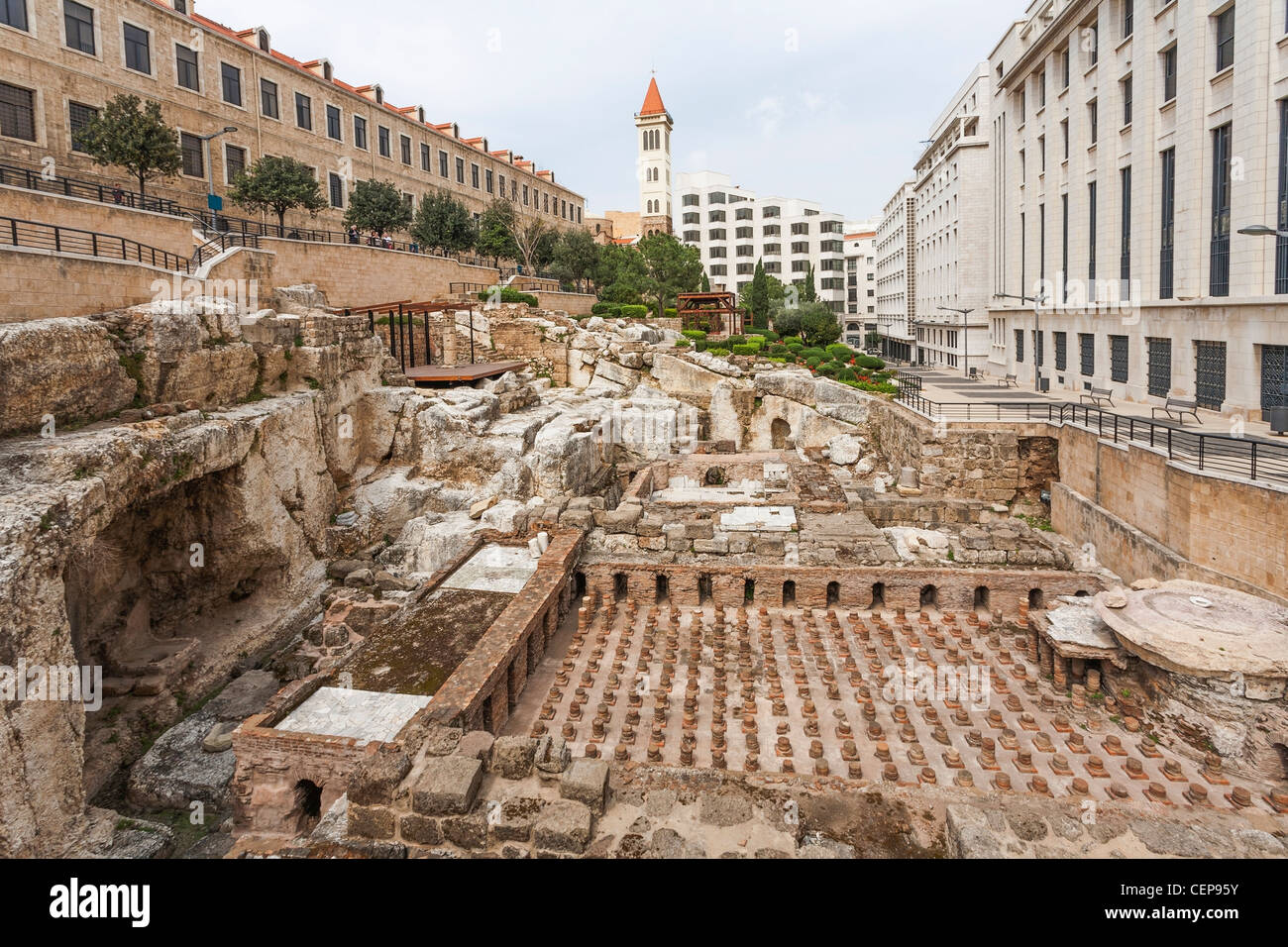by NAJIA HOUSSARI — arabnews.com — BEIRUT: Lebanese President Michel Aoun pledged the safe return of Syrian refugees, with the European Union (EU) confirming it was ready to help in all areas of repatriation. Aoun met the EU’s foreign policy chief, Federica Mogherini, in Beirut. She had been in Sharm El-Sheikh, Egypt, for a two-day Arab-EU summit and […]
Source: AFP — BEIRUT: Dozens of protesters rallied in the Lebanese capital Beirut on Saturday (Feb 23), calling on the government to recognise civil marriages carried out on home soil. The demonstrators gathered in front of Lebanon’s interior ministry, days after recently-appointed Interior Minister Raya al-Hasan said she is willing to engage in “serious and […]
Go to just about any conference today and you will hear a familiar tale of woe. A once great corporation, which had dominated its industry, fails to adapt and descends into irrelevance. The protagonists of these stories always come out looking more than a little bit silly, failing to recognize business trends that seem obvious. The problem with these stories is that they are rarely true. Make no mistake, it takes a considerable amount of intelligence, ambition and drive to manage a large organization. The notion that these people overlooked what was obvious to everyone else is overly facile and simplistic. It’s also misleading. Great companies do not fail because of a single decision or trend. The roots of disruption are always more complex than that. So by imagining CEOs to be morons, we neglect to look more closely at their demise and learn valuable lessons. The truth is that every business model fails eventually. We need to learn the true sources of failure if we are to overcome them.
What They Don’t Tell You About The Blockbuster Story
A favorite pundit punching bag is Blockbuster. The story, as they tell it, is that Blockbuster was blind to the threat that Netflix represented, subjected its customers to predatory late fees and failed to formulate a strategy to adapt to the digital world. Not surprisingly, the once might company descended into chaos, then bankruptcy. The truth is much more complex, interesting and troubling. As former CEO John Antioco explains in a HBR article (and nobody disputes his facts), after initially dismissing Netflix as a niche player, his team soon saw the writing on the wall and moved quickly to discontinue late fees and invest heavily in an online platform. Eventually, his team came up with a strategy that actually began to beat Netflix at its own game. It was called Total Access and it allowed customers to rent videos online and return them in stores. It immediately gained traction and before long Blockbuster was adding subscribers faster than Netflix was. So what happened? Investors didn’t like the costs associated with the program (about $400 million) and franchisees were wary about the threat to their businesses. Things came to a head in 2007 when, after a salary dispute, Antioco was fired. His replacement, Jim Keyes, reversed the strategy to focus on the retail operation and the company went bankrupt three years later. Notice the difference. The way the pundits tell it, if the silly fat-cat executives were paying attention, all would have been well. The reality is that the senior leadership came up with a viable strategy, but couldn’t manage the internal networks of forces that derailed it. That’s not so simple.
BEIRUT, Feb. 21 (Xinhua) — Lebanese ministers said on Thursday that the relations with Syria topped the agenda of the first meeting of the new cabinet which won the parliament’s vote of confidence last week, National News Agency (NNA) reported. “The government’s first session focused much on the issue of the relations with Syria,” Lebanese […]
BEIRUT, (Xinhua) — David Frem, ambitious founder of Frem Industry, will finally realize his dream of launching “Frem Immortal,” the first car to be designed and manufactured in Lebanon. “We are working on getting a permit from the industry minister to allow the registration of any car manufactured by our company,” Frem, a young Lebanese […]

BY ABBY SEWELL nationalgeographic.com –— In the mountains above Beirut, a stately Ottoman-era hotel came to life again last autumn after decades of abandonment. The Grand Hotel Casino Ain Sofar–once a preferred vacation spot for the region’s stars and the site of weddings and lavish parties–was left to looters and the occupying Syrian Army during Lebanon’s civil war, which lasted from 1975 to 1990. It was finally left empty and in disrepair. But this past fall, hundreds of Lebanese and foreign guests once again flooded the hotel—renovated but still deliberately bearing the scars of its past—this time for weeks of events that included an art exhibition, storytelling nights, and DJ sets. The hotel has once again become the site of weddings and parties. It’s one of a handful of examples in a growing push in Lebanon toward rehabilitating threatened landmarks, many of them damaged in the war, and re-envisioning them as collective spaces. Amid the largely privatized post-war reconstruction process, developers and politicians imagined Beirut transforming into a glittering modernist metropolis like Dubai. Many of the city’s historic French Mandate and Ottoman-era buildings were leveled and replaced by high rises. Get amazing videos, travel tips, and pictures of the world’s most beautiful and far-flung places, plus special offers.
By signing up for this email, you are agreeing to receive news, offers, and information from National Geographic Partners and our partners. Click here to visit our Privacy Policy. Easy unsubscribe links are provided in every email. But as the construction has picked up pace, with cranes hovering over half-finished towers in most of Beirut’s neighborhoods, so has the push to preserve the heritage sites that remain. “It’s a matter of identity,” says Joana Hammour, one of the organizers of Save Beirut Heritage, an organization formed in 2010 that has pushed to save threatened sites and for legislation that would preserve more. In a country with 18 recognized religious sects and a complicated patchwork of political groups, Hammour says, “We need to have those spaces of collective memory, spaces of gathering, spaces of community, to live together.” Beit Beirut is one attempt at creating such a space. The imposing yellow building, elegant despite the bullet holes riddling its exterior, occupies a prominent corner in central Beirut on the former demarcation line that separated East and West Beirut during the civil war. Formerly a family home known as the Barakat building, it became a snipers’ perch during the war.

by Rachel Cooke @msrachelcooke –theguardian.com —– Nadine Labaki is a Lebanese actor and director whose latest film, Capernaum (meaning confusion or chaos in Arabic), won the jury prize at the 2018 Cannes film festival and has since been nominated for a Bafta (beaten by Roma) and an Academy Award. The film tells the story of a 12-year-old boy, Zain, who lives in a Beirut slum and whose parents are incapable of taking care of him. Having run away from home, he lives for a while with an illegal immigrant from Ethiopia, Rahil. None of those who appear in the film is a professional actor.
How did you come to start thinking about Capernaum?
In Lebanon, we are exposed to the sight of children suffering on a daily basis. They are there on the streets, selling gum or flowers or carrying heavy loads, such as gas tanks. Sometimes, they’re just lying there. I once saw this kid on a cement block in the middle of the road at one o’clock in the morning. He wanted to sleep, but he couldn’t. It began with feeling responsible, with wanting to become the voice of these kids. I thought: if I stay silent, I’m complicit in this crime – and it is a crime that we allow this to happen. I don’t know how we live with ourselves. These children are in perpetual danger. So I started going out with my co-writers to the most difficult neighbourhoods – to the slums, to the detention centres, to the courts – just watching.
The boy at the centre of the film, Zain, decides to sue his parents. Where did you get that idea?
I asked the children I spoke to if they were happy to be alive and for most the answer was no. One of them told me: “I don’t know why I was born if no one is going to love me, if no one is going to kiss me before I go to sleep, if I’m going to be beaten up every day.” One day, it hit me. This is going to be the story of a child who says: no more. For the character of Zain’s mother, I was inspired by a woman who’d had 16 children, seven of whom died from neglect.

by catholicherald.co.uk —This last January 30, I was present in London for two very interesting occurrences. The first was a wreath-laying ceremony at the equestrian statue of King Charles I in Trafalgar Square; the second was an Anglo-Catholic style Anglican Mass at the Banqueting House. That evening, at St George’s Chapel at Windsor Castle, there was a service of Evensong honouring the murdered Monarch. In all three ceremonies, Charles was referred to as a Saint. Indeed, surprising as it may sound to Catholics, the King is the only individual the Church of England has ever tried to canonize. The reason is that it was made very clear that his life would have been spared had he been willing to sanction the abolition of bishops in the Church of England by Cromwell. His feast day was removed from the Book of Common Prayer by a Whig government in the mid-19th century, but the Anglo-Catholic wing of the CofE fostered devotional societies who ever since have tried to bring the holiday back. Chief among these are the Society of King Charles the Martyr and the Royal Martyr Church Union. Interesting as all these facts may be to students of English history and Anglican beliefs, what interest could the question of Charles I’s sanctity possibly have for Catholics? Quite a bit, really.
For one thing, his cultus plays a prominent role in that Anglican Patrimony which Pope Benedict XVI created the Personal Ordinariates to preserve within the Catholic Church. When various Eastern Orthodox groups have been reconciled to the Church, they have been allowed to continue to venerate a number of post-1054 figures as Saints. So, might our newly admitted brethren of Anglican background be able to do the same with Charles I? A close reading of his life and reveals some striking points. Raised by a Catholic mother and married to a Catholic Queen, Charles demonstrated a sympathy for Catholics unseen since Mary I died. At various times throughout his reign he negotiated with several Popes for reunion, assuring them that his beliefs were the same as theirs – a fact that helped bring him to the axe. He venerated Mary and the Saints and believed in the Real Presence. It must be remembered that this was two centuries before Apostolicae Curae, meaning Rome had not yet ruled Anglican Orders invalid and it was still very much an open question whether Anglicans had the Apostolic Succession. Though in retrospect they did not, it was a doctrine Charles was willing to die for.

(MENAFN – Trend News Agency) The new Lebanese government won on Friday the vote of confidence with 111 votes out of 128 after discussing the ministerial statement for four days during this past week, Trend reported citing Xinhua . Prior to the voting, Prime Minister Saad Hariri gave a speech while focusing on the need to conduct reforms in a bid to avoid the deterioration of the country on all levels. “We have agreed on the main points in the statement and we know very well that if we do not agree the country will collapse,” he said. He emphasized the need to implement important reforms and to find a final and complete solution for the electricity problem which costs the treasury around two billion U.S. dollars a year. Hariri also placed great importance on reforms needed to comply for the 11 billion U.S. dollars pledged at CEDRE conference. Hariri added that CEDRE program was not made by the international community with the intention of nationalizing Syrian refugees in Lebanon. “The program is 100 percent Lebanese even if it will employ some Syrians,” he said. “Who does not want a better business environment or a reduction in the budget deficit?” Hariri asked. Hariri said that Lebanon should take advantage of this historical opportunity. “All political parties will take part in our work plan. The council of ministers and the Parliament are responsible of translating this work plan into actions,” he said. Follow Trend on Telegram.
by naharnet — MP Jamil al-Sayyed on Friday engaged in a verbal clash with Prime Minister Saad Hariri, MP Sami Fatfat and a number of Mustaqbal MPs and ministers, as the parliament resumed its debate of the new government’s Policy Statement. The heated exchange erupted when Fatfat hit back at remarks voiced by Sayyed on Tuesday. “An apology should be addressed to every young man arrested between the years 1992 and 2005,” Fatfat said, accusing Sayyed without naming him of “fabricating cases.” Sayyed hit back, blasting Fatfat as a “youngster” and a “chick.” Hariri intervened at this point, telling Sayyed: “It would be better if you don’t talk. Respect yourself!” “This is someone who doesn’t respect martyrs and you are letting him talk,” the PM added. Sayyed snapped back saying, “You respect yourself!” The MP had on Tuesday called on Hariri to “apologize” over “the four years that the four officers spent in jail,” referring to himself and three other former chiefs of security agencies who were jailed in connection with the 2005 assassination of ex-PM Rafik Hariri before being cleared of any charges. MP Jihad al-Samad, a member of the Hizbullah-backed Consultative Gathering, had called on Hariri earlier in the session to “begin reform from the Internal Security Forces directorate and OGERO.” Al-Samad also criticized FPM ministers who have lodged signed resignations with their party’s leadership.
MP Alain Aoun meanwhile lauded MP Mohammed Raad’s apology over remarks voiced by MP Nawwaf al-Moussawi, describing it as “the epitome of national responsibility, patriotism and keenness on coexistence.” “Bashir Gemayel is one of Lebanon’s iconic martyrs and is an icon for large segments of the Lebanese and a former Lebanese president. Any attack against him that exceeds political criticism is an attack on national unity,” Aoun said.
BEIRUT (Reuters) – Saudi Arabia is lifting its longstanding warning against citizens traveling to Lebanon, its ambassador to Beirut said on Wednesday, marking a new warmth in a once-close relationship that has cooled in recent years. Riyadh was once a major supporter of both the Lebanese state and political allies in Beirut, but mindful of […]
